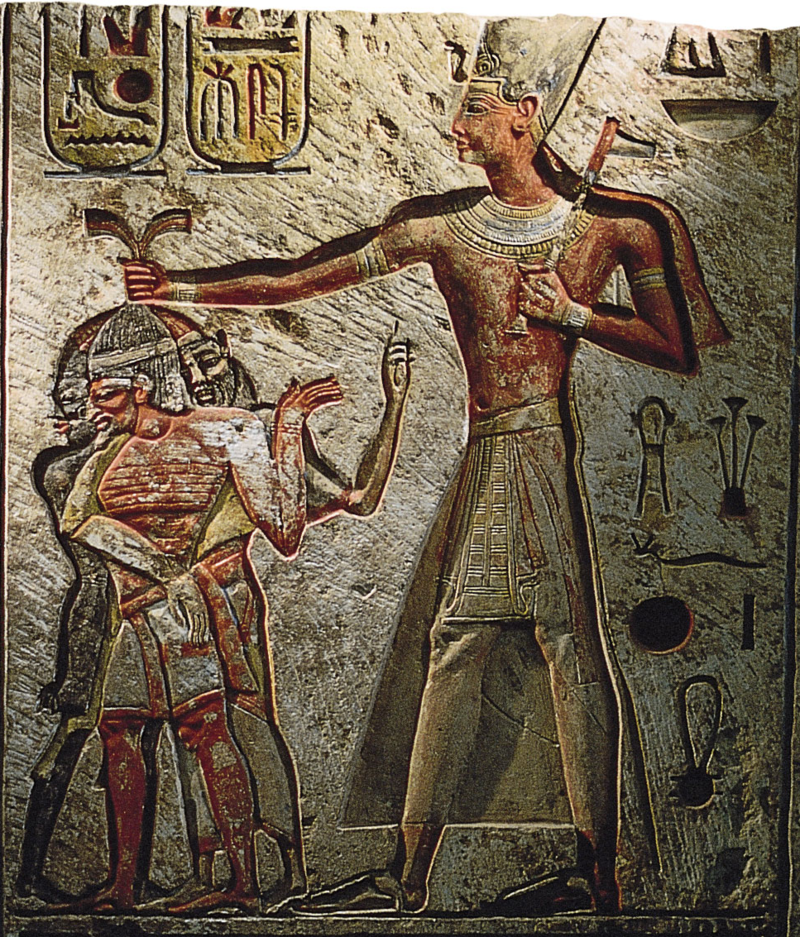The youthful king with the bold hand has not his equal.
His arms are powerful, his heart is firm,
His courage is like that of the god of war, Monthu, in the fight.
He seizes his weapons, and is a wall of iron for his warriors,
 |
| A relief of Ramses II from Memphis showing him capturing enemies: a Nubian, a Libyan and a Syrian, circa 1250 BC. Cairo Museum [photo by Speedster on Wikipedia] |
He seizes his bow, and no man offers opposition.
Mightier than a hundred thousand united together goes he forward.
His courage is firm like that of a bull which seizes ...
He has smitten all peoples who had united themselves together.
No man knows the thousands of men who stood against him.
A hundred thousand sank before his glance.
Terrible is he when his war-cry resounds;
Bolder than the whole world;
Dreadful as the grim lion in the valley of the gazelles.
His command will be performed.
No opponent dares to speak against him.
Wise is his counsel. Complete are his decisions,
When he wears the royal crown Atef and declares his will,
A protector of his people against unrighteousness.
His heart is like a mountain of iron.
Such is King Ramses Miamun.
After the King had armed his people and his chariots,
And in like manner the Shardonians, which were once his prisoners.
Then was the order given them for the battle.
The king took his way downward,
And his people and his chariots accompanied him,
And followed the best road on their march.
Penta-our (14th century BC) Egypt
Translated by Dr. Henry Brugsch
Source: The sacred books and early literature of the East; with an historical survey and descriptions
Vol II, Egypt, by Charles Francis Horne, Parke, Austin & Lispcomb Inc.,1917

No comments:
Post a Comment
Please keep your comments relevant and free from abusive language. Thank you. Note that comments are moderated so it may be a day or two before your comment is posted - irrelevant or abusive comments will not be published.